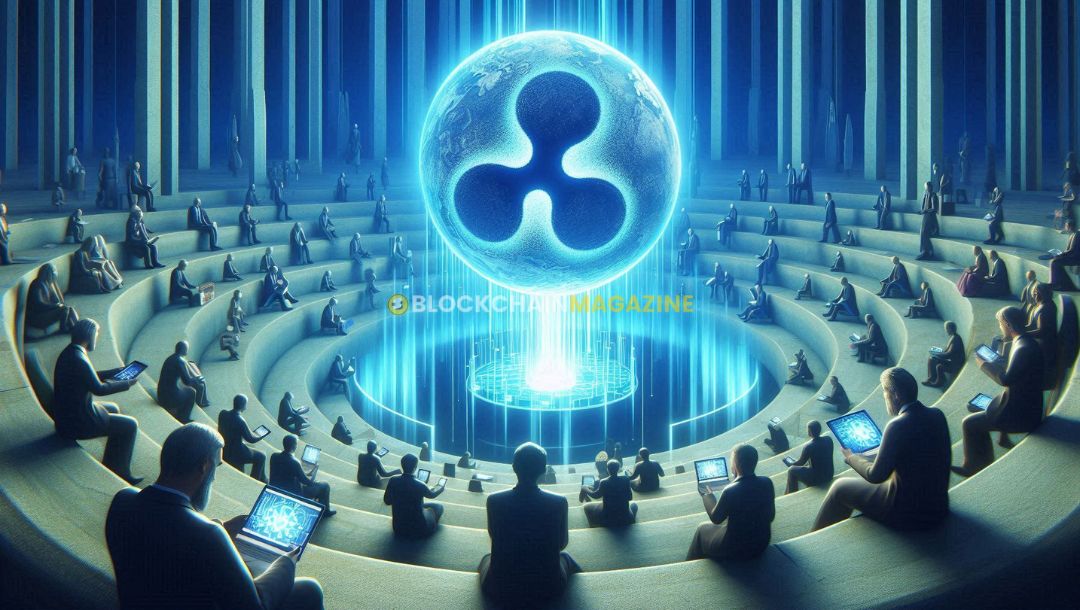The XRP Ledger (XRPL) experienced a substantial downturn in transactional volumes from Q1 to Q2 of 2024, as elucidated in Ripple’s Q2 2024 XRP Markets Report. This precipitous decline coincided with a marked increase in average transaction costs, signifying a notable shift in onchain activity dynamics.
During Q2 2024, XRPL’s onchain transactions dwindled by an alarming 65.6%, with the ledger recording approximately 86.38 million transactions. This figure starkly contrasts the 251.39 million transactions documented in Q1 2023, highlighting a significant contraction in network usage, as detailed in the report released by XRP’s issuer on August 2.
Ripple remarked on this downturn: “Activity across most major protocols decreased in Q2. XRPL was no exception with onchain activities noticeably lower in Q2 as compared to Q1.” The reduction in transaction volumes occurred amidst a surge in per-transaction costs, which escalated by 168% during the quarter, reaching 0.00394 XRP per transaction. Ripple attributed this cost increase to heightened network load, a measure intended to safeguard the peer-to-peer network from spam transactions.
This shift in transaction dynamics marks a reversal from the previous quarter’s trends, where Q1 2024 witnessed a 108% increase in transaction volumes from Q4 2023, accompanied by a 45% reduction in average transaction costs.
Despite this downturn, Ripple remains optimistic about the future. The company anticipates that digital asset exchange Archax will introduce “hundreds of millions of dollars” worth of tokenized Real-World Assets (RWA) onto the XRPL within the next year. Additionally, Ripple reiterated its intention to launch a stablecoin, Ripple USD, later in 2024. This stablecoin will be backed by US dollar deposits, short-term US government treasuries, and other cash equivalents.
The report’s publication follows the announcement that OpenEden, a tokenization platform, has initiated the issuance of tokenized United States Treasury bills (T-bills) on the XRPL. Cointelegraph reported on August 1 that these TBILL tokens are underpinned by short-term US government T-bills and reverse repurchase agreements collateralized by US Treasurys. Token minters will be subjected to Know Your Customer (KYC) and Anti-Money Laundering (AML) screening processes to ensure compliance with security and regulatory standards.

 Bitcoin
Bitcoin  Ethereum
Ethereum  Tether
Tether  XRP
XRP  Solana
Solana  Dogecoin
Dogecoin  USDC
USDC  Cardano
Cardano  Lido Staked Ether
Lido Staked Ether  TRON
TRON  Sui
Sui  Avalanche
Avalanche  Toncoin
Toncoin  Wrapped stETH
Wrapped stETH  Shiba Inu
Shiba Inu  Chainlink
Chainlink  Wrapped Bitcoin
Wrapped Bitcoin  Stellar
Stellar  Hedera
Hedera  Polkadot
Polkadot  WETH
WETH  Bitcoin Cash
Bitcoin Cash  LEO Token
LEO Token  Uniswap
Uniswap  Litecoin
Litecoin  Pepe
Pepe  Hyperliquid
Hyperliquid  Wrapped eETH
Wrapped eETH  NEAR Protocol
NEAR Protocol  USDS
USDS  Ethena USDe
Ethena USDe  Aptos
Aptos  Internet Computer
Internet Computer  Aave
Aave  Mantle
Mantle  Cronos
Cronos  POL (ex-MATIC)
POL (ex-MATIC)  Ethereum Classic
Ethereum Classic  MANTRA
MANTRA  Render
Render  Monero
Monero  Bittensor
Bittensor  Artificial Superintelligence Alliance
Artificial Superintelligence Alliance  Dai
Dai  Tokenize Xchange
Tokenize Xchange  Filecoin
Filecoin  Arbitrum
Arbitrum 



